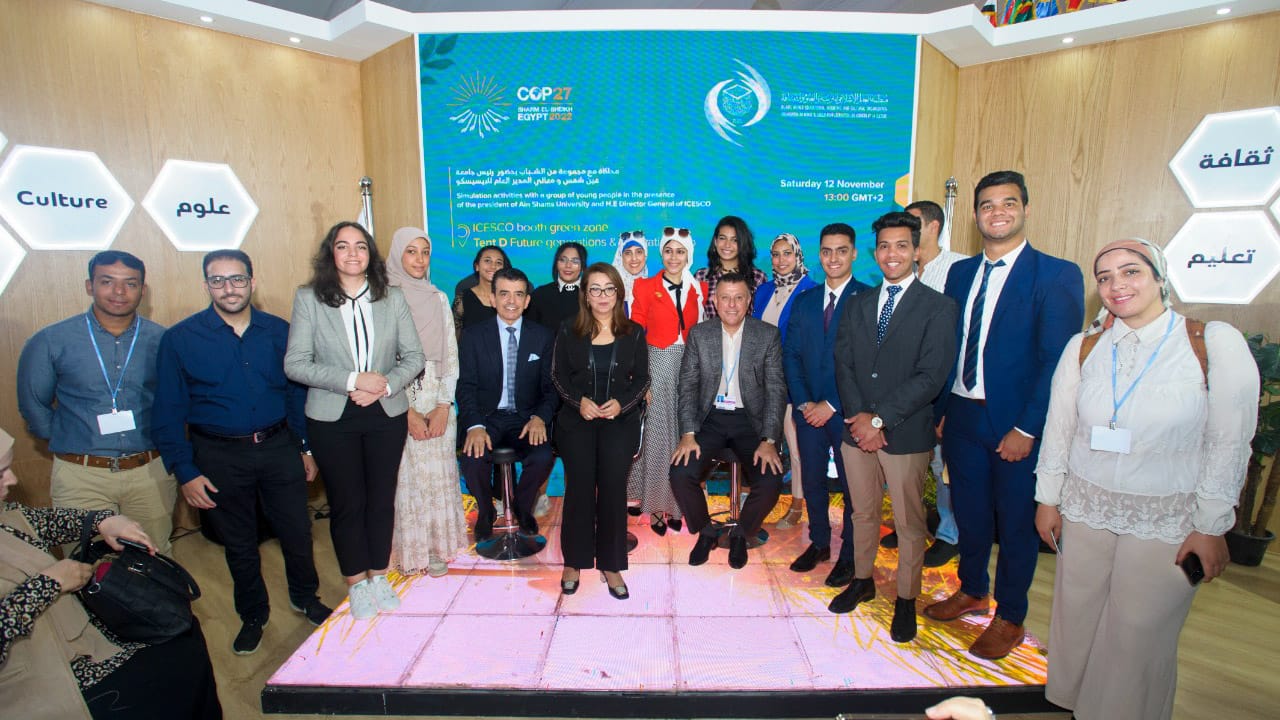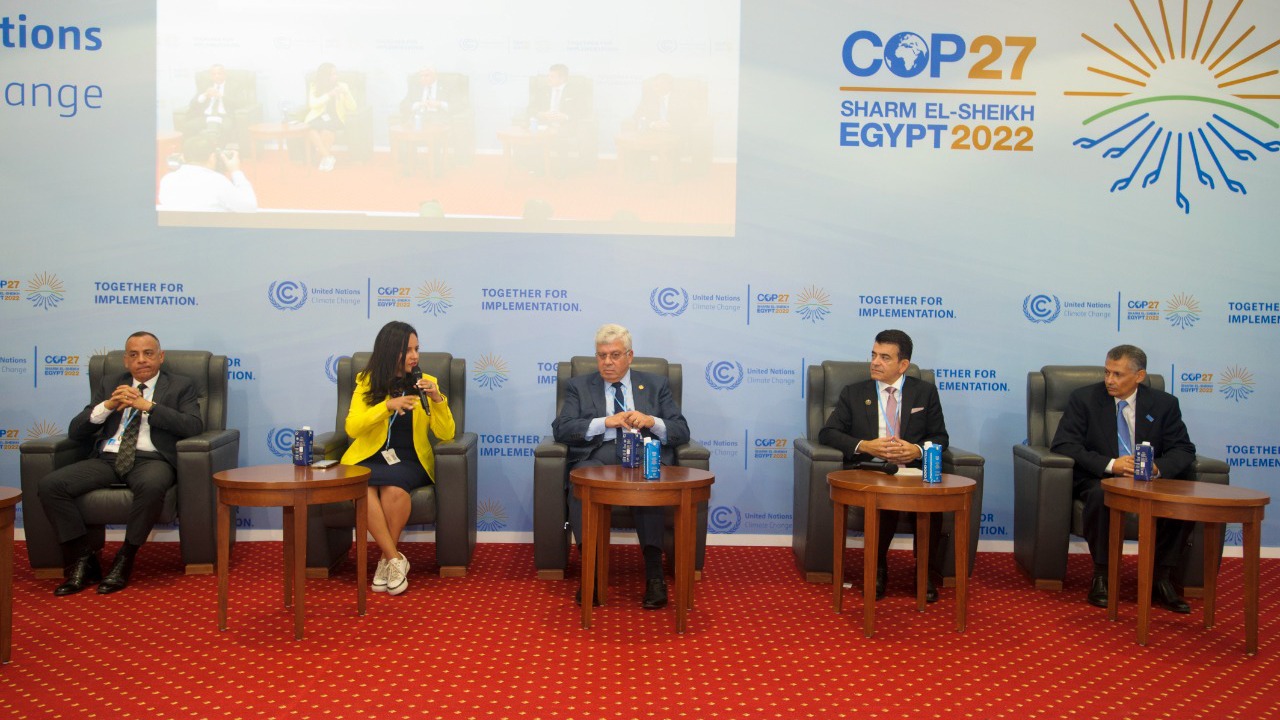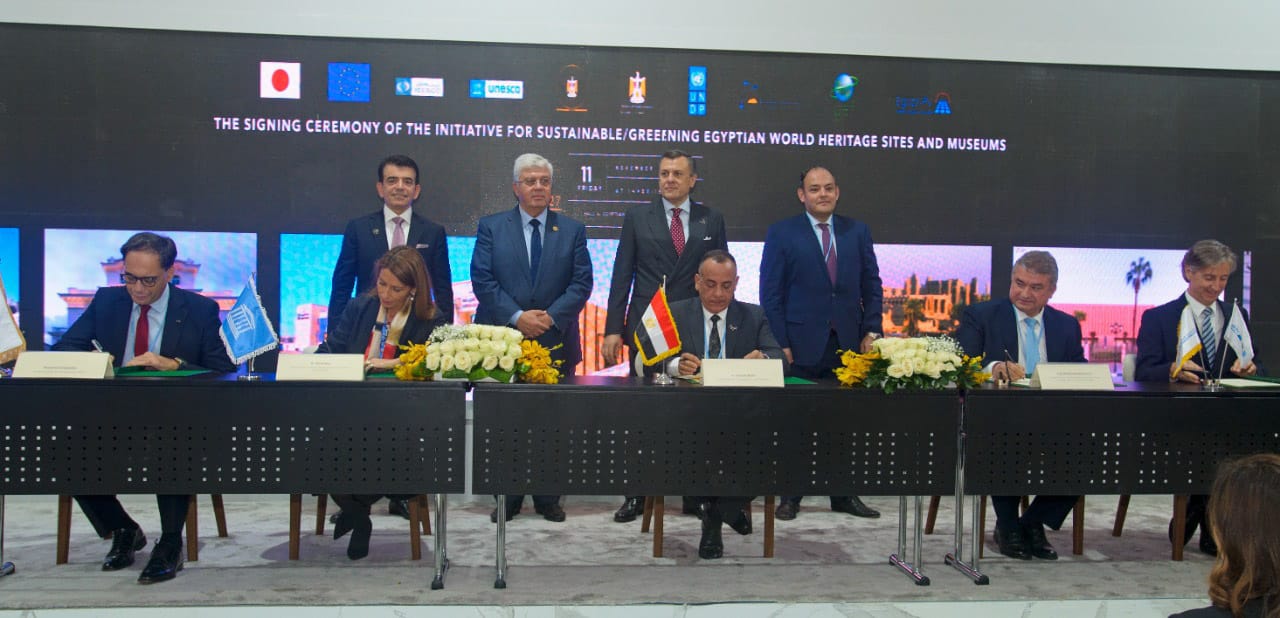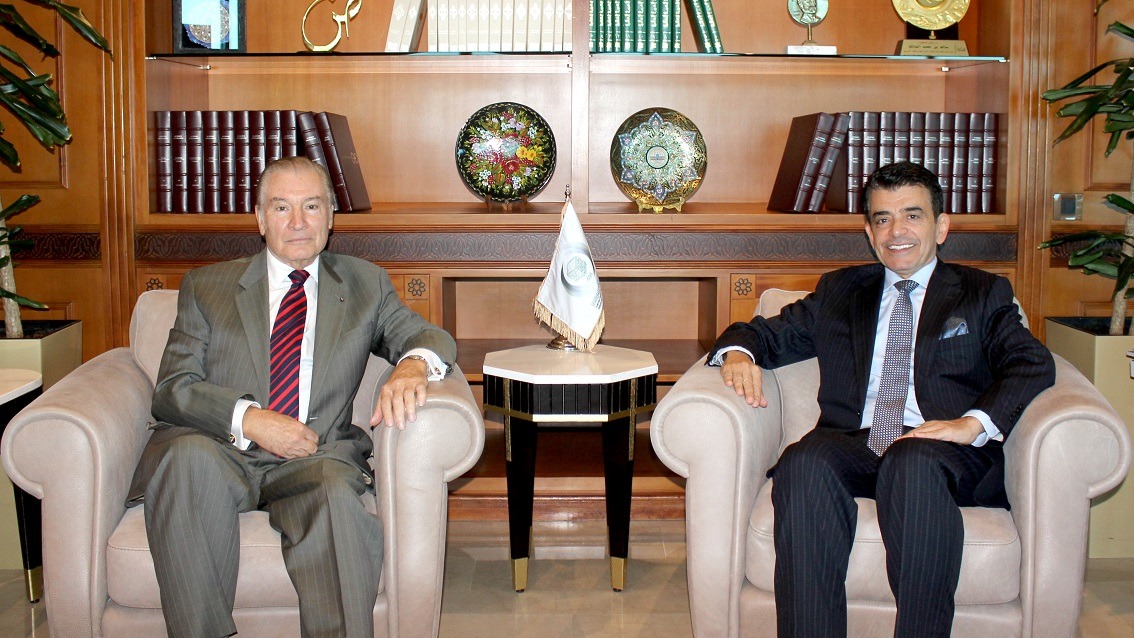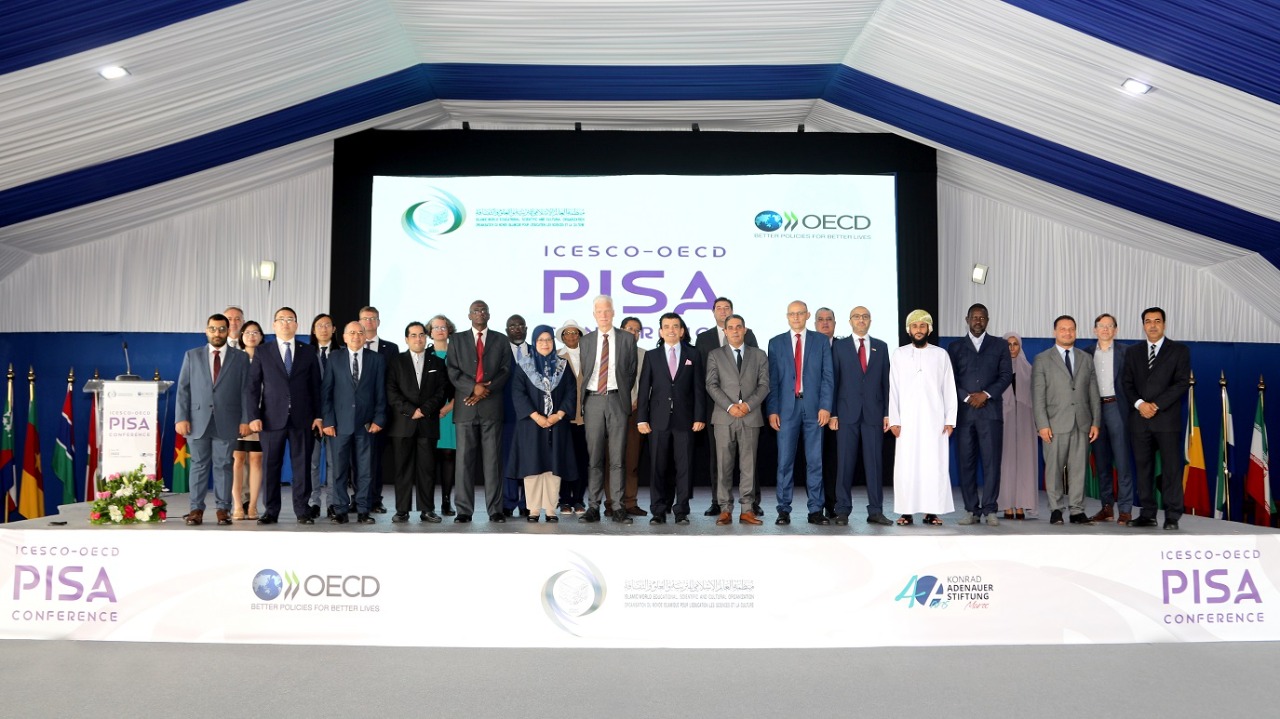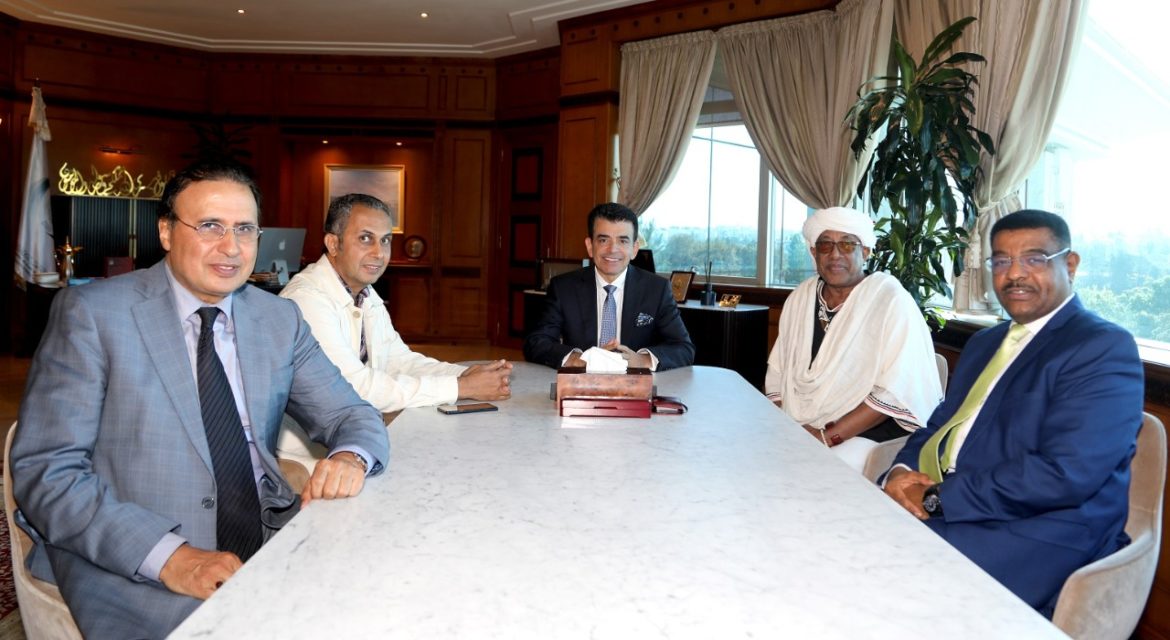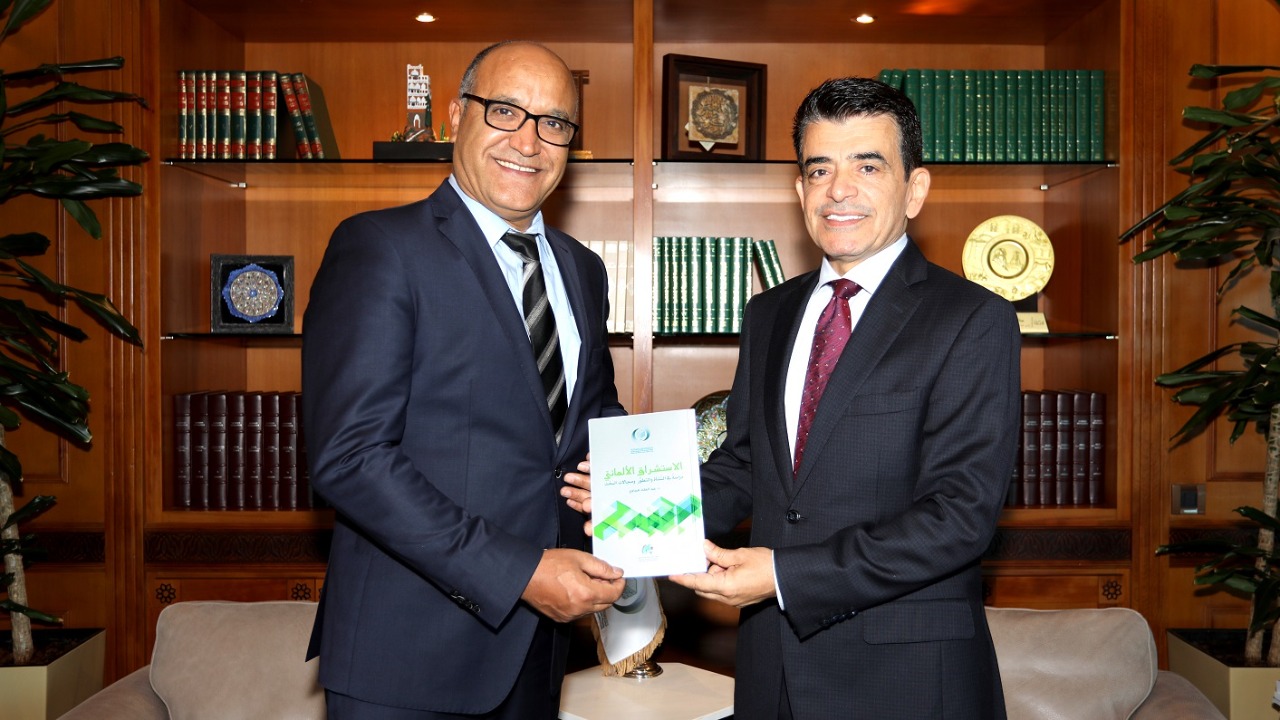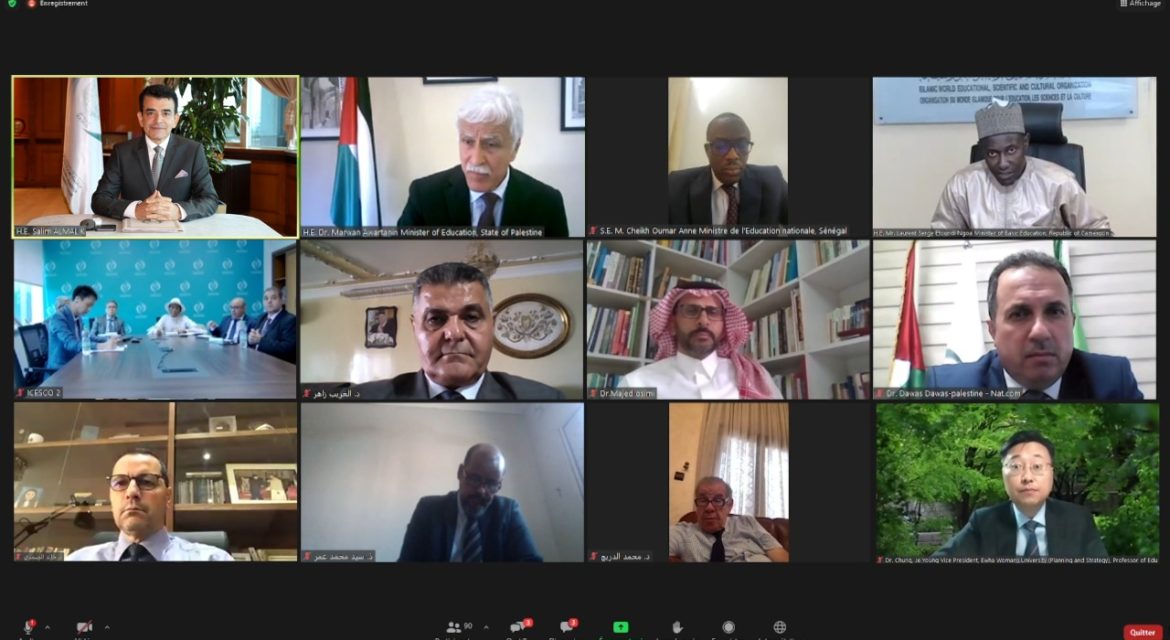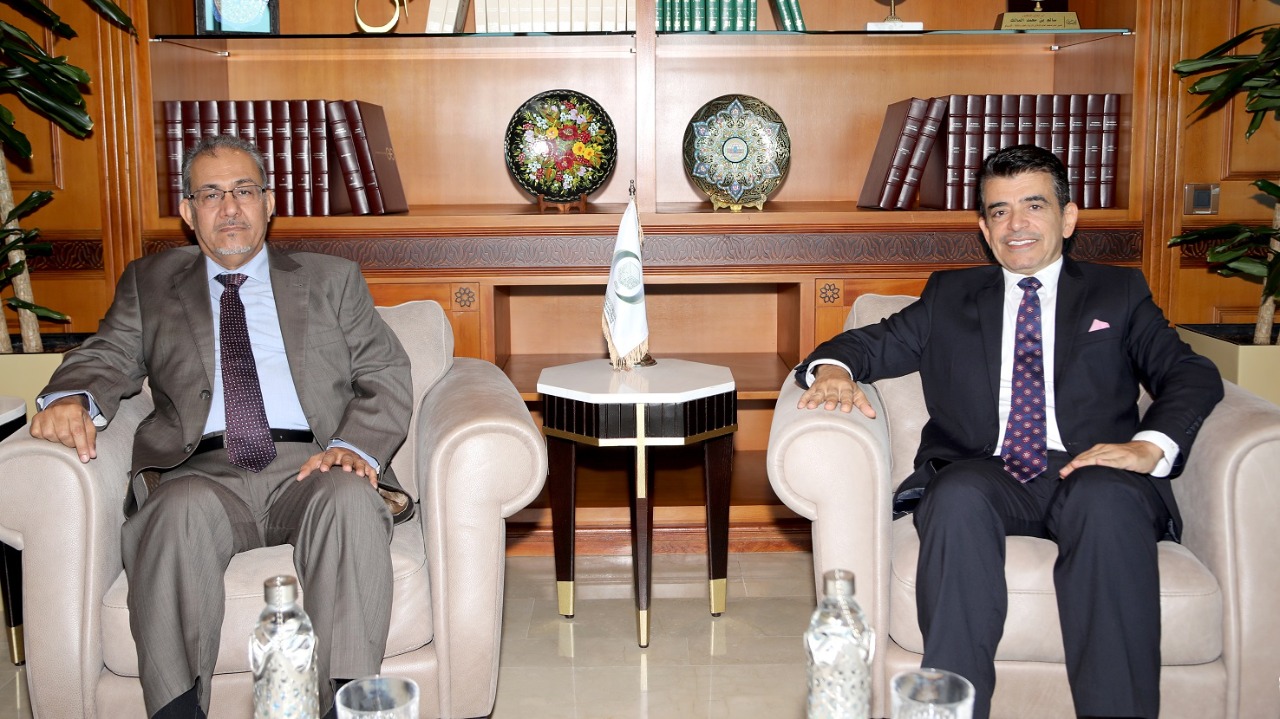As part of holding the 27th Conference of the Parties to the United Nations Framework Convention on Climate Change (COP27), and with high-level attendance at the Egypt Pavilion in the Blue Region, a memorandum of understanding (MoU) was signed between the Egyptian Ministry of Tourism and Antiquities, ICESCO, UNESCO, the United Nations Development Programme (UNDP) and the Industrial Modernization Center (IMC) in Cairo, Egypt, on Friday, November 11, 2022, to support the green transformation project and the use of clean energy, represented in converting heritage sites and museums in Egypt to the use of solar energy as a sustainable alternative that does not affect the environment and contributes to achieving sustainable development goals.
The signing ceremony witnessed a high-caliber presence of princes, ministers and officials of the MoU participating parties and the Member States, mainly HRH Princess Dana Firas, UNESCO Goodwill Ambassador for Cultural Heritage, President of the Petra National Trust in the Hashemite Kingdom of Jordan, and from the Arab Republic of Egypt.
Dr. Ayman Ashour, Minister of Higher Education and Scientific Research and Chairman of the Egyptian National Commission, Dr. Ahmed Issa, Minister of Tourism and Antiquities, Dr. Ahmed Samir, Minister of Trade and Industry, and Dr. Mostafa Waziri, Secretary-General of the Supreme Council of Antiquities of Egypt.
Dr. Mohamed Zine El Abidine, Head of the Culture and Communication Sector, signed the MoU on behalf of ICESCO. During the signing ceremony, Dr. Salim M AlMalik, ICESCO Director-General, delivered an address in which he explained that the cultural and natural heritage is among the most precious treasures of human history and the responsibility to preserve it is a collective task that requires a lot of planning, action and perseverance to achieve success.
Dr. AlMalik pointed out that climate changes increase the deterioration of several natural heritage sites, as the number of sites affected by climate changes increased from 35 to 62 sites in just three years, and the number of sites degraded due to the severity of climate changes increased to 16 sites since 2017, noting that this alarming situation requires all stakeholders to redouble efforts and build bridges of communication for greater cooperation to protect and preserve heritage sites of all kinds from deterioration.
The MoU comes in implementation of ICESCO’s vision and strategic orientations in adopting and supporting green transformation initiatives, in order to preserve the environment and address the damages caused by climate changes that affect all aspects of life on the planet, especially heritage that ICESCO accords special attention to and places its protection, safeguarding and sustainability at the forefront of its strategic objectives.
By participating in this agreement, ICESCO aims to use clean energy in heritage sites and museums to provide sustainable protection for heritage sites from the effects of using unclean energy sources that negatively affect heritage sites, museums and their collections.
ICESCO also aims to encourage and motivate its Member States to adopt and implement green transformation initiatives with all their components based on the use of clean solar energy. ICESCO contributes to converting several heritage sites and museums to use solar energy with the Egyptian Ministry of Tourism and Antiquities.
It started with the Museum of Islamic Art and another site that does not belong to the Islamic historical era, as a confirmation that ICESCO’s interest in heritage does not distinguish between one era and another or its connection to a particular religion as human heritage represents the identity of peoples and is a cultural and civilizational diversity.
In this connection, ICESCO calls on Member States to participate in signing an international agreement, to be adopted by ICESCO, to convert all heritage sites and museums in the Islamic world to use clean energy through relying on green transformation initiatives.






